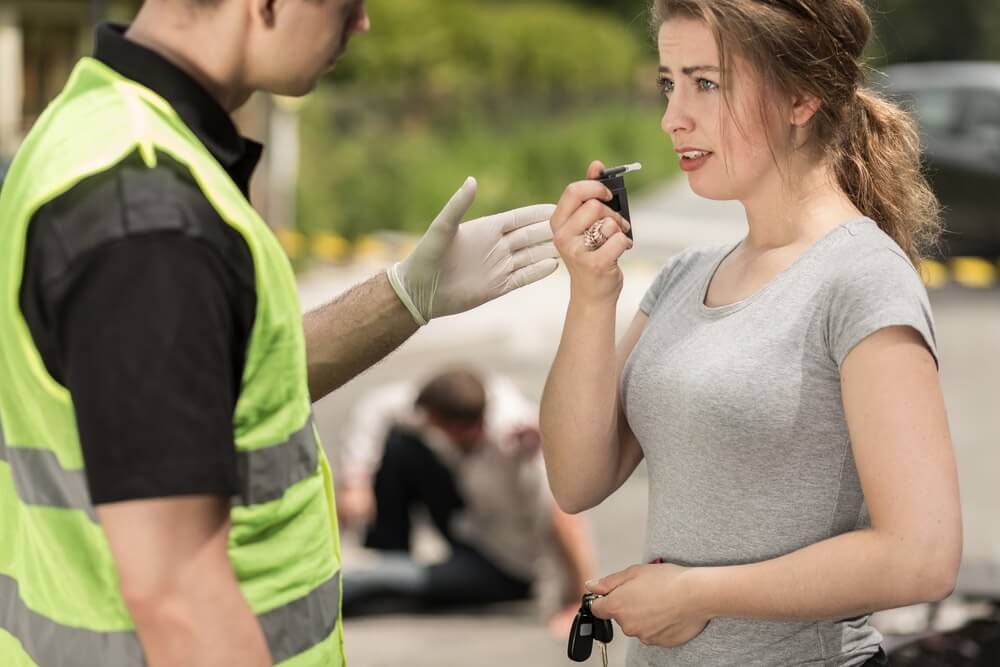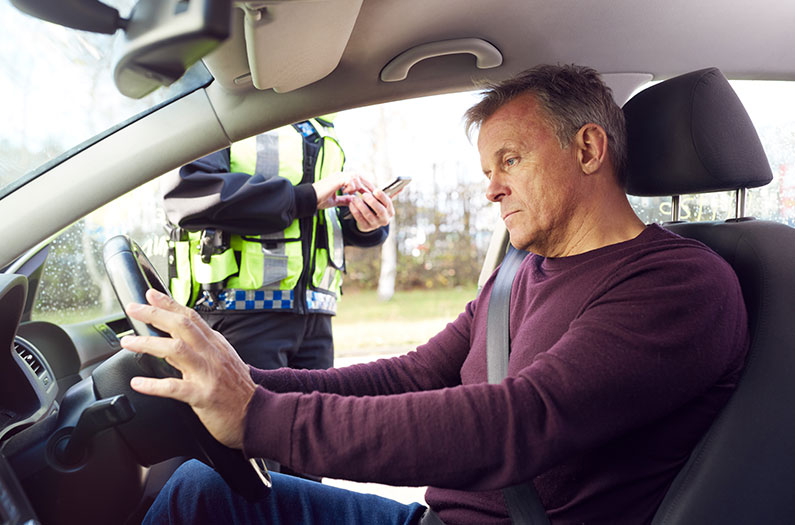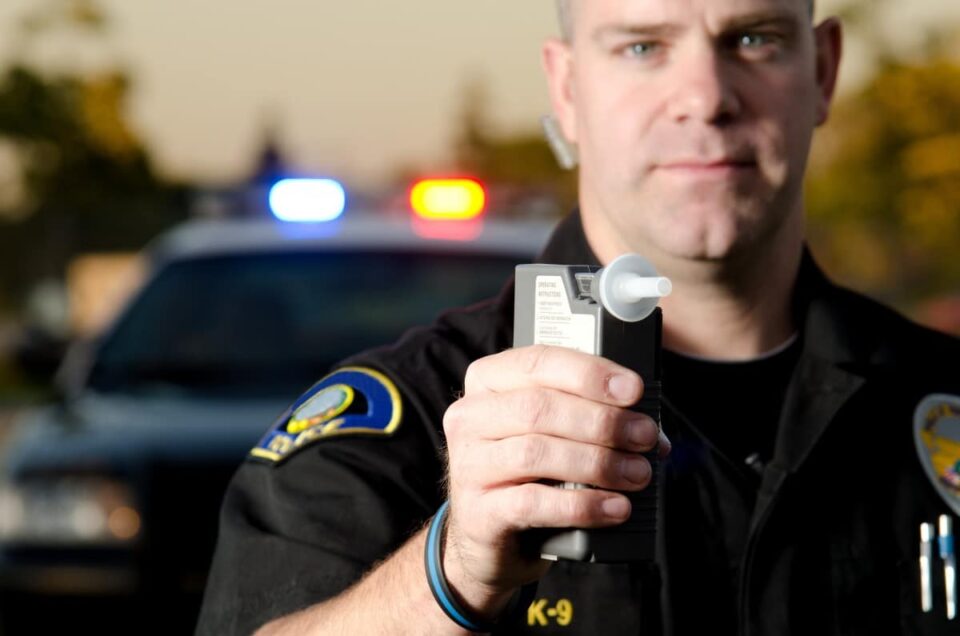If you are pulled over for suspicion of being under the influence of either drugs or alcohol while driving, you will be given a sobriety test to measure whether the police officer’s suspicions are accurate. While there are many different types of tests that officers can choose to administer, these methods are not 100% foolproof. Therefore, it is important to be aware of the different types of DUI testing, the risk of false positives, and what to do if you are charged with a DUI.
Field Sobriety Tests

Field sobriety tests are used to assess an individual’s motor and cognitive abilities. There are three types of field sobriety tests that are most commonly used:
- Horizontal Gaze Nystagmus (HGN) Test: During an HGN test, the officer will ask you to slowly follow a moving pen or light with your eyes. Horizontal gaze nystagmus is a normal, involuntary jerking movement of the eyeball that occurs when your eyes rotate around. However, when an individual is intoxicated, the jerking movement becomes more pronounced and occurs at less extreme angles than it would otherwise. According to the National Highway Traffic Safety Administration (NHTSA), this is the most reliable field sobriety test with a 77% accuracy rate.
- Walk-and-Turn Test: In a walk-and-turn test, you will be asked to take nine heel-to-toe steps in one direction, turn on one foot and then repeat in the other direction. During this assessment, the officer will be looking to see how well you kept in a straight line, check your balance, and determine how accurately you followed the directions given to you. The NHTSA reports that this test has a 68% accuracy rate.
- One-Leg Stand Test: During the one-leg stand test, the officer will ask you to stand on one foot with the other foot approximately six inches off the ground. Then, you must count starting up from 1,001 until the officer tells you to stop. The officer will be looking to see if you are hopping around, if you put your foot down, if you are using your arms for balance, or if you are swaying. The NHTSA reports that this test has a 65% accuracy rate.
Chemical Tests

In addition to the field sobriety testing options, there are also a few chemical testing methods that an officer can choose from. These chemical tests are usually performed once the officer has reasonable suspicion that the driver is under the influence. These tests are debatably more accurate as they specifically look at your blood alcohol content level (BAC). A BAC of 0.08% or higher is considered to be illegal and you may be subject to a DUI charge.
- Blood Test: During a blood test, a sample of your blood will be taken and submitted for further analysis to detect the amount of alcohol and/or drugs found in your bloodstream.
- Urine Test: For a urine test, a urine sample will be taken to indirectly check your BAC. However, it can take up to two hours for alcohol to show up in your urine.
- Breathalyzer Test: During a breath test, an officer will use a portable breathalyzer that indirectly detects your BAC by calculating the amount of alcohol in the individual’s breath.
False Positives
While there are several methods that can be used to determine an individual’s BAC and level of impairment, it is important to note that these methods are not always accurate and false positives may occur. A false positive results when a test wrongly ascertains that a condition is present when it is not actually so. This could be extremely devastating, detrimental, and damaging if an individual was in fact sober.
Causes of False Positive Results
There are many reasons that you may receive a false positive result including:
- Medications: The ingestion of medications such as Benadryl or Robitussin can inaccurately assess that you are under the influence.
- Timing of the test: The timing of the DUI tests can be deceiving in that if you wait too long or take it shortly after using the restroom, vomiting, or eating, inaccurate results may occur.
- Improper calibration or sterilization of equipment: Failing to properly calibrate or sterilize equipment, such as a breathalyzer, before use can cause extremely inaccurate results.
- Dietary habits: An individual’s dietary habits, such as maintaining a low-carb diet, can increase one’s BAC.
- Anxiety: If you are prone to anxiety, you may be very nervous and have a panic attack, thus inhibiting your ability to listen and follow directions accurately
- Sloped testing area: If the area in which you are asked to perform a field sobriety test has an uneven or slippery surface, you might have difficulty balancing regardless of whether you are intoxicated.
- Contaminated chemical samples: During the collection of chemical samples, it is highly possible that the sample becomes tainted and contaminated by airborne objects in the environment.
- Underlying medical conditions: Certain medical conditions, such as asthma or diabetes, can disproportionately affect one’s results.
Tips to Avoid a DUI

Here are some best practices to avoid a DUI:
- Consume water and food if consuming alcoholic beverages.
- Avoid drinking games that will quickly get you intoxicated.
- Have a designated driver or partake in ride sharing options (Lyft, Uber, etc.).
- Purchase a self-breathalyzer test to get a sense of your BAC before deciding to drive.
- Pace yourself while drinking.
While these tips can help you avoid getting a DUI, it is still recommended that you do not drive at all while under the influence of alcohol or drugs. It’s better to be safe than sorry as driving under the influence can be life-threatening to both you and other drivers on the road.
Legal Actions To Take If You Get a DUI
If you have been charged with a DUI, it is important to take the necessary actions to help protect yourself and understand the legal repercussions that come with a DUI accusation. It is crucial that you contact an experienced DUI defense lawyer who knows the ins and outs of a DUI charge and can help fight for you. Drive safely!

